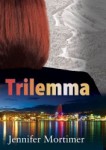

February 17 – 23: “Is deception an essential feature of thrillers?”
 This week we’re talking about deception! Join ITW Members Stephen Carbone, Lisa Von Biela, Jennie Mortimer and Brian C. Poole as they discuss whether or not deception is an essential part of thrillers and try to answer the question: “Would they otherwise be adventure stories?”
This week we’re talking about deception! Join ITW Members Stephen Carbone, Lisa Von Biela, Jennie Mortimer and Brian C. Poole as they discuss whether or not deception is an essential part of thrillers and try to answer the question: “Would they otherwise be adventure stories?”
~~~~~
 After a mixed education in literature, science and commerce, Jennifer Mortimer has worked as an IT executive in many countries and industries. She is currently the R&D project manager at Weta Digital, the people behind the special effects for AVATAR, LORD OF THE RINGS, and THE HOBBIT. Jennifer and her husband Paul split their time between a colonial villa in Wellington, New Zealand, and a Cathar castle in the south of France. TRILEMMA is her debut novel.
After a mixed education in literature, science and commerce, Jennifer Mortimer has worked as an IT executive in many countries and industries. She is currently the R&D project manager at Weta Digital, the people behind the special effects for AVATAR, LORD OF THE RINGS, and THE HOBBIT. Jennifer and her husband Paul split their time between a colonial villa in Wellington, New Zealand, and a Cathar castle in the south of France. TRILEMMA is her debut novel.
 Lisa von Biela worked in Information Technology for 25 years, then left the field to attend the University of Minnesota Law School, graduating magna cum laude in 2009. She now practices law in Seattle, Washington. Lisa’s first short story appeared in The Edge in 2002. Her short works have appeared in various small press venues, including Gothic.net, Twilight Times, Dark Animus, AfterburnSF, and more. Her debut novel, THE GENESIS CODE, was released in 2013. Her second novel, THE JANUS LEGACY, is due out in February 2014, and her first novella, ASH AND BONE, is set for release in May 2014.
Lisa von Biela worked in Information Technology for 25 years, then left the field to attend the University of Minnesota Law School, graduating magna cum laude in 2009. She now practices law in Seattle, Washington. Lisa’s first short story appeared in The Edge in 2002. Her short works have appeared in various small press venues, including Gothic.net, Twilight Times, Dark Animus, AfterburnSF, and more. Her debut novel, THE GENESIS CODE, was released in 2013. Her second novel, THE JANUS LEGACY, is due out in February 2014, and her first novella, ASH AND BONE, is set for release in May 2014.
 Brian C. Poole is an author, attorney and all-around pop culture junkie. A Boston area native and graduate of Boston College and Suffolk Law School, Brian’s published novels include Grievous Angels and Echoes of a Distant Thunder. You may also have read some prospectuses that Brian wrote, but for your sake, he hopes not.
Brian C. Poole is an author, attorney and all-around pop culture junkie. A Boston area native and graduate of Boston College and Suffolk Law School, Brian’s published novels include Grievous Angels and Echoes of a Distant Thunder. You may also have read some prospectuses that Brian wrote, but for your sake, he hopes not.
Stephen Carbone is new to the novel writing world. His literary experience comes from penning regular articles for several aviation journals, a sort of open-door series. His thirty plus years in aviation were on both sides of the table – airline and government. Stephen has investigated major airline accidents; this first book, an aviation techno-thriller, closely parallels his first hand experiences with such disasters. Stephen and his wife of thirty-one years live in Virginia.
- LAST GIRL MISSING with K.L. Murphy - July 25, 2024
- CHILD OF DUST with Yigal Zur - July 25, 2024
- THE RAVENWOOD CONSPIRACY with Michael Siverling - July 19, 2024
